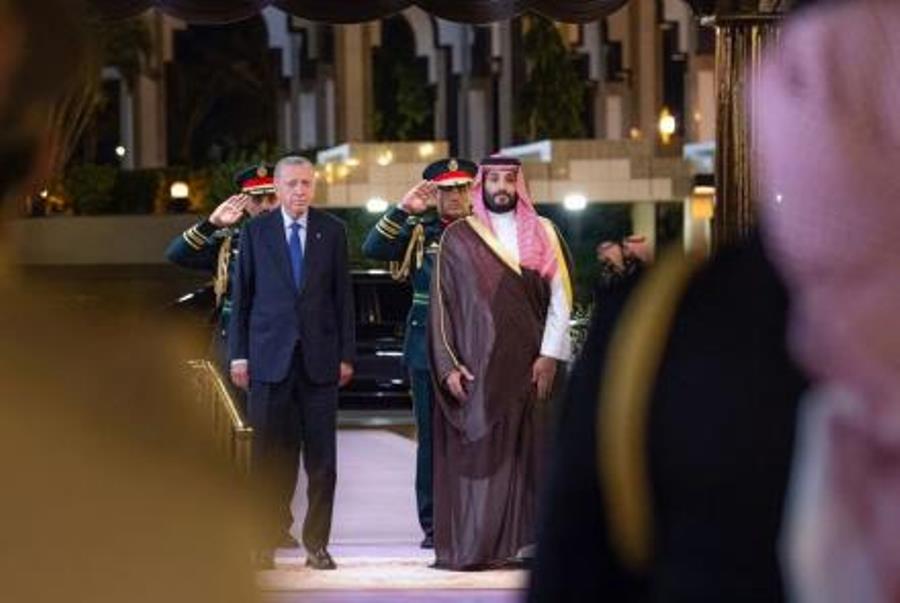- (Reuters) – Saudi Arabia agreed on Tuesday to buy Turkish drones, one of several lucrative contracts President Tayyip Erdogan secured for Turkey’s struggling economy as Ankara reaps the benefits of his recent diplomatic push to repair ties with Gulf Arab powers.
Erdogan and Saudi Crown Prince Mohammed bin Salman attended the signing ceremony between Turkish defence firm Baykar and the Saudi defence ministry, Saudi state news agency SPA reported.
Erdogan arrived in the Saudi Red Sea city of Jeddah on Monday for the first stop of a Gulf tour.
Saudi Arabia will acquire the drones “with the aim of enhancing the readiness of the kingdom’s armed forces and bolstering its defense and manufacturing capabilities,” Defence Minister Prince Khalid bin Salman said in a tweet on Tuesday.
SPA did not give details about the value of the deal.
Investments and funding from the Gulf have helped relieve pressure on Turkey’s economy and its currency reserves since 2021, when Ankara launched a diplomatic effort to repair ties with Saudi Arabia and the United Arab Emirates.
Turkey had been at odds for years with the two Gulf states over Ankara’s support of pro-democracy movements in the Middle East and North Africa and the murder of Saudi journalist Jamal Khashoggi in the Saudi consulate in Istanbul in 2018.
Erdogan will travel to Qatar on Tuesday, the second stop of his first Gulf tour since his re-election in May. On Wednesday, he is due in the United Arab Emirates.
SPA said Erdogan and Prince Mohammed attended the signing of a defense cooperation plan by Prince Khalid and Tukish Defence Minister Yasar Guler.
The two countries also inked several memorandums of understanding in different sectors including energy, real estate and direct investments, SPA said.
Last month, Turkish Vice President Cevdet Yilmaz and Finance Minister Mehmet Simsek travelled to the UAE to discuss “economic cooperation opportunities” with counterparts, and they met President Sheikh Mohammed bin Zayed al-Nahyan, Ankara said.
Turkey’s budget deficit surged to seven times the year-ago levels in June, data showed on Monday, while last month’s annual inflation was close to 40% with the lira nearly 29% weaker this year.
Explore Now
Saturday, 26 Apr 2025
Kabul
--°C
Mon
--° / --°
Tue
--° / --°
Wed
--° / --°













